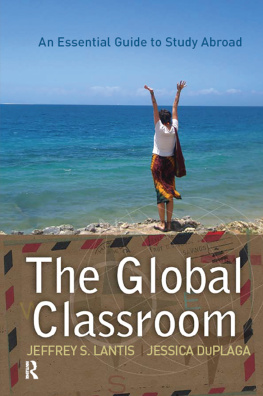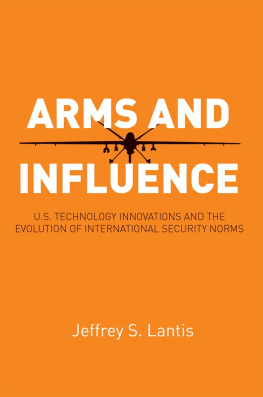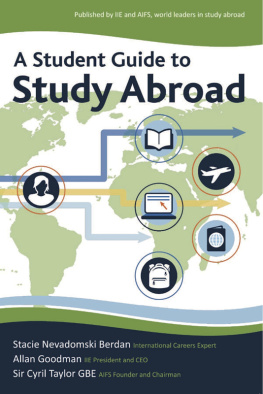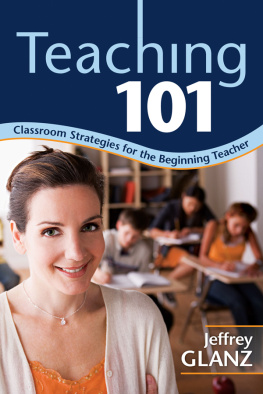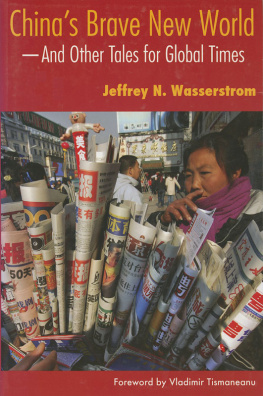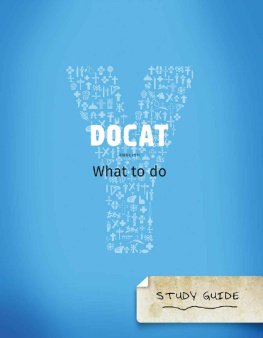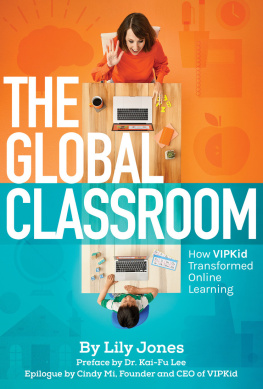First published 2010 by Paradigm Publishers
Published 2016 by Routledge
2 Park Square, Milton Park, Abingdon, Oxon OX14 4RN
711 Third Avenue, New York, NY 10017, USA
Routledge is an imprint of the Taylor & Francis Group, an informa business
Copyright 2010, Taylor & Francis.
All rights reserved. No part of this book may be reprinted or reproduced or utilised in any form or by any electronic, mechanical, or other means, now known or hereafter invented, including photocopying and recording, or in any information storage or retrieval system, without permission in writing from the publishers.
Notice:
Product or corporate names may be trademarks or registered trademarks, and are used only for identification and explanation without intent to infringe.
Library of Congress Cataloging-in-Publication Data
Lantis, Jeffrey S., 1966
The global classroom : an essential guide to study abroad / Jeffrey S.
Lantis and Jessica DuPlaga.
p. cm. (International studies intensives series)
Includes bibliographical references and index.
ISBN 978-1-59451-676-4 (hardcover : alk. paper)
ISBN 978-1-59451-677-1 (papeback : alk. paper)
1. International education. I. DuPlaga, Jessica. II. Title.
LC1090.L279 2010
370.116dc22
2009036131
ISBN 13 : 978-1-59451-676-4 (hbk)
ISBN 13 : 978-1-59451-677-1 (pbk)
To my parents, Paul and Patricia Lantis,
who have inspired me to explore the world.
J. S. L.
To my mother, and to the many educators in my life,
who believed in me and encouraged me to take on
challenges I never thought I would be able to conquer.
J. D.
T ouring the Kremlin on a crisp autumn day. Sipping coffee at an outdoor caf in Paris. Talking with professors at the Australian National University in Canberra. Hunting for bargains at a local market in Jamaica. Hiking up the side of a mountain in the Scottish highlands. Talking with students at the University of Brasilia. Craning our necks to view the beauty of the Sistine Chapel in Rome during an art history lecture. Walking along the path where the Berlin Wall once divided a city, a country, and the world. These are the experiences of our lives. They are both personal and educational. They have transformed us, as similar experiences have shaped the lives of millions of other students from the United States.
This book is about preparing students to meaningfully study abroadto view the preparation for overseas study, participation in an academically rigorous program, and the return home as parts of a holistic intellectual and emotional journey. By drawing on prominent theories of learning and cross-cultural education, the book builds the discussion around a contemporary academic development approach to contextualizing knowledge about study abroad. In other words, this book gives students, faculty, and study abroad professionals the tools they need to help position the study abroad experience in a valuable academic context.
The organizational plan of the book reflects a very practical orientation that should appeal to a broad audience. It takes students step by step from their first thoughts about the possibility of study abroad all the way to marketing their knowledge as engaged global citizens to future employers. In addition to covering all phases of education abroad, it includes resources and worksheets for easy use by students, faculty, and advisers. The book offers flexibility in application depending on the institution, curricular orientation, or personal interests.
* * *
The authors would like to recognize many people who helped make this book possible. First, we are grateful to the hundreds of students with whom we have worked for their enthusiasm about study abroad. Their questions, experiences, and ideas serve as inspiration for this book. We also thank our colleagues at The College of Wooster for their encouragement and interest in the project. President Grant Cornwell and Interim Provost Shila Garg have helped to shape our understanding of the power of crossing cultures and of global citizenship. In addition, Kent Kille, Katie Holt, Nicola Kille, Virginia Wickline, Harry Gamble, and many others provided valuable ideas. We also have benefited from participation in professional conferences and programs sponsored by the Forum on Education Abroad (including its flagship journal, Frontiers: The Interdisciplinary Journal of Study Abroad) and NAFSA: Association of International Educators.
Jeffrey Lantis is grateful for opportunities to teach and research in locales as diverse as Braslia, Moscow, Bonn, and Sydney. In 2007, Lantis received a J. William Fulbright Senior Scholar Award to serve as a Visiting Scholar in the Department of International Relations in the Research School of Pacific and Asian Studies at the Australian National University and the School of Social Sciences and International Studies at the University of New South Wales. He thanks colleagues in both programs and especially the Fulbright Commission staff, including Mark Darby and Lyndell Wilson, for their sponsorship. The Fulbright commitment to the promotion of international educational and cultural exchange was a strong inspiration for this project. In addition, Lantis acknowledges valuable research and editorial assistance from Elysia Tonti, Tess Morrissey, and Whitney Louderback.
Jessica DuPlaga would like to thank colleagues at the Institute for the International Education of Students (IES) for providing the opportunity to enter into the world of study abroad, first as a student and later as a professional. Her time abroad was an inspiration for her personal and professional development. Chantal Rouchet, Thibaut de Berranger, and Batrice de la Bretesche at the IES Center in Nantes, France, provided endless encouragement and examples of student-centered advising and administration that have shaped DuPlagas vision of education and study abroad. She also acknowledges the personal, academic, and professional encouragement of past and current teachers and colleaguesBetty Ford, Carolyn Durham, Nicola Kille, and many others.
Finally, the authors owe a special debt of gratitude to Jennifer Knerr and members of the Editorial Board of the International Studies Intensives Series at Paradigm for their encouragement on the project. We appreciate input on the project from James McCormick, Dan Caldwell, Cooper Drury, Robin Broad, David Skidmore, Steve Hook, and others. We are also grateful for helpful comments from anonymous reviewers. Their suggestions helped us to refine the focus of the project. While this book is the product of a collaborative process, we remain responsible for any errors of argument or omission in the text.
Jeffrey S. Lantis and Jessica DuPlaga




